Search
Search Results
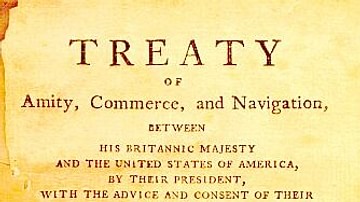
Definition
Jay Treaty
The Jay Treaty, formally known as the Treaty of Amity, Commerce, and Navigation, Between His Britannic Majesty and the United States of America, was a controversial treaty signed by representatives of the United States and Great Britain in...
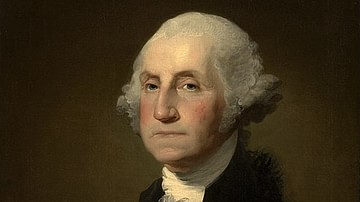
Definition
George Washington
George Washington (1732-1799) was an American military officer and statesman who led the Continental Army to victory during the American Revolutionary War (1775-1783) and served as the first president of the United States (1789-1797). Often...
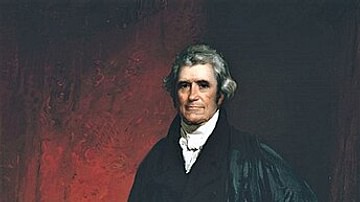
Definition
Marbury v. Madison
Marbury v. Madison (1803) was a landmark decision of the United States Supreme Court that established the principle of judicial review. In the decision, written by Chief Justice John Marshall, the court struck down a congressional statute...
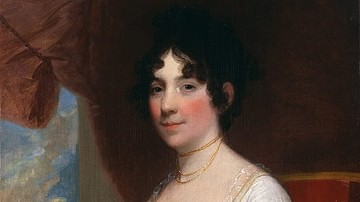
Definition
Dolley Madison
Dolley Madison (1768-1849), born Dolley Payne, was a prominent American First Lady, a function she held both during the presidency of her husband, James Madison, and for his predecessor, the widower Thomas Jefferson. Known for her elegance...
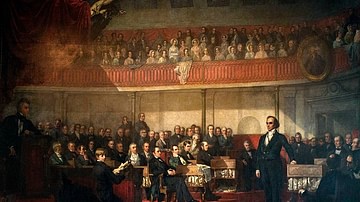
Definition
Webster-Hayne Debate
The Webster-Hayne debate was a series of back-and-forth speeches between Senator Daniel Webster of Massachusetts and Senator Robert Y. Hayne of South Carolina in January 1830. What started as a debate over the sale of western lands blossomed...

Definition
Thomas Jefferson
Thomas Jefferson (1743-1826) was an American lawyer, statesman, philosopher, and a Founding Father of the United States. A prominent figure of the American Revolution, he wrote the Declaration of Independence and later served as the first...

Definition
Whiskey Rebellion
The Whiskey Rebellion was a violent uprising that occurred in western Pennsylvania in 1794, in opposition to an excise tax on liquor. After anti-tax protestors assaulted federal tax collectors and threatened to march on Pittsburgh, President...
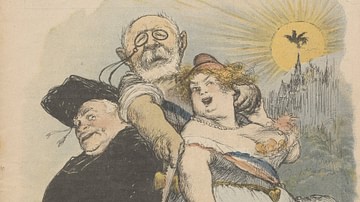
Article
Architects of France's 1901 Law of Associations
The Law of Associations was adopted by the French Parliament on 3 July 1901 to limit the influence of Catholic teaching orders as the first step toward the formal separation of church and state that would follow in 1905. Of 16,904 religious...
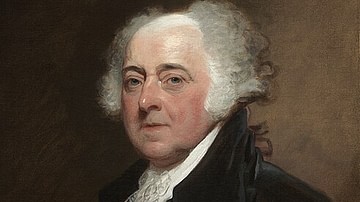
Definition
John Adams
John Adams (1735-1826) was an American lawyer, statesman, and diplomat who was a prominent leader of the American Revolution (1765-1789) before going on to serve as the first vice president (1789-1797) and second president of the United States...
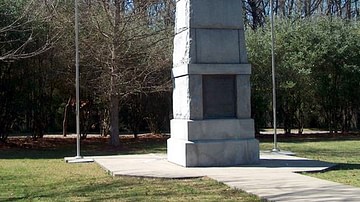
Article
Trail of Tears: Memorial and Protest of the Cherokee Nation by John Ross
The Trail of Tears was the forced relocation of the "Five Civilized Tribes" – Cherokee, Chickasaw, Choctaw, Muscogee Creek, and Seminole – from their ancestral lands in the Southeastern region of the United States to "Indian Territory" (modern-day...